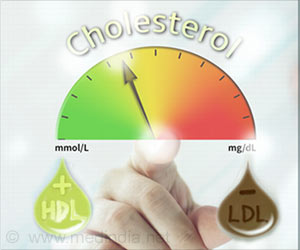Men with increased body mass index (BMI) were significantly more likely to be infertile than normal-weight men, according to research.
Men with increased body mass index (BMI) were significantly more likely to be infertile than normal-weight men, according to research conducted at the National Institute of Environmental Health Sciences (NIEHS), one of the National Institutes of Health.
“The data suggest that a 20-pound increase in men’s weight may increase the chance of infertility by about 10 percent,” says Markku Sallmen, lead author on the paper who is now at the Finnish Institute of Occupational Health. BMI is a number calculated from a person’s weight and height. BMI provides a reliable indicator of body fatness for most people and is used to screen for weight categories that may lead to health problems.The researchers studied couples enrolled in the Agricultural Health Study (AHS), a large project that began in 1993 examining factors that impact the health of farmers and their families in agricultural communities.
“Women who are overweight or obese tend to have a more difficult time becoming pregnant than normal-weight women, but whether men who are overweight or obese also have fertility problems had not been studied,” says Donna Baird, Ph.D., an NIEHS epidemiologist with the study. The study is published in the September 2006 issue of Epidemiology.
The data on infertility and body mass came from questionnaires that 1,468 farmers and their wives completed when they enrolled in the study. The wives completed a family health questionnaire, which included information about the couple’s reproductive history. The men reported their weight and height on a questionnaire about their health. The analysis was limited to couples with a pregnancy attempt during the four years before enrollment, and to women under the age of 40.
The researchers divided the couples into infertile and fertile groups. The infertile couples were those that tried for longer than a year to conceive, and the fertile couples were those that conceived within a year. The majority of men and women were more than 30 years old. Twenty-eight percent of the couples had experienced infertility.
Researchers found that men’s BMI was an independent risk factor for infertility. The researchers adjusted for other factors that could affect fertility, including high BMI of the woman, age, cigarette smoking, alcohol intake, and solvent and pesticide exposure. After adjustment, there was a general increase in infertility with increased BMI, reaching a nearly 2-fold increase among obese men.
Advertisement
The researchers did not have data on frequency of sexual intercourse, so it is possible that overweight men have less sexual intercourse than their normal weight counterparts and this could influence fertility. However, there have been recent studies looking at semen characteristics that show lower semen quality for overweight and obese men, as well as hormonal differences.
Advertisement
Source-Newswise
SRM










